[javascript protected email address]
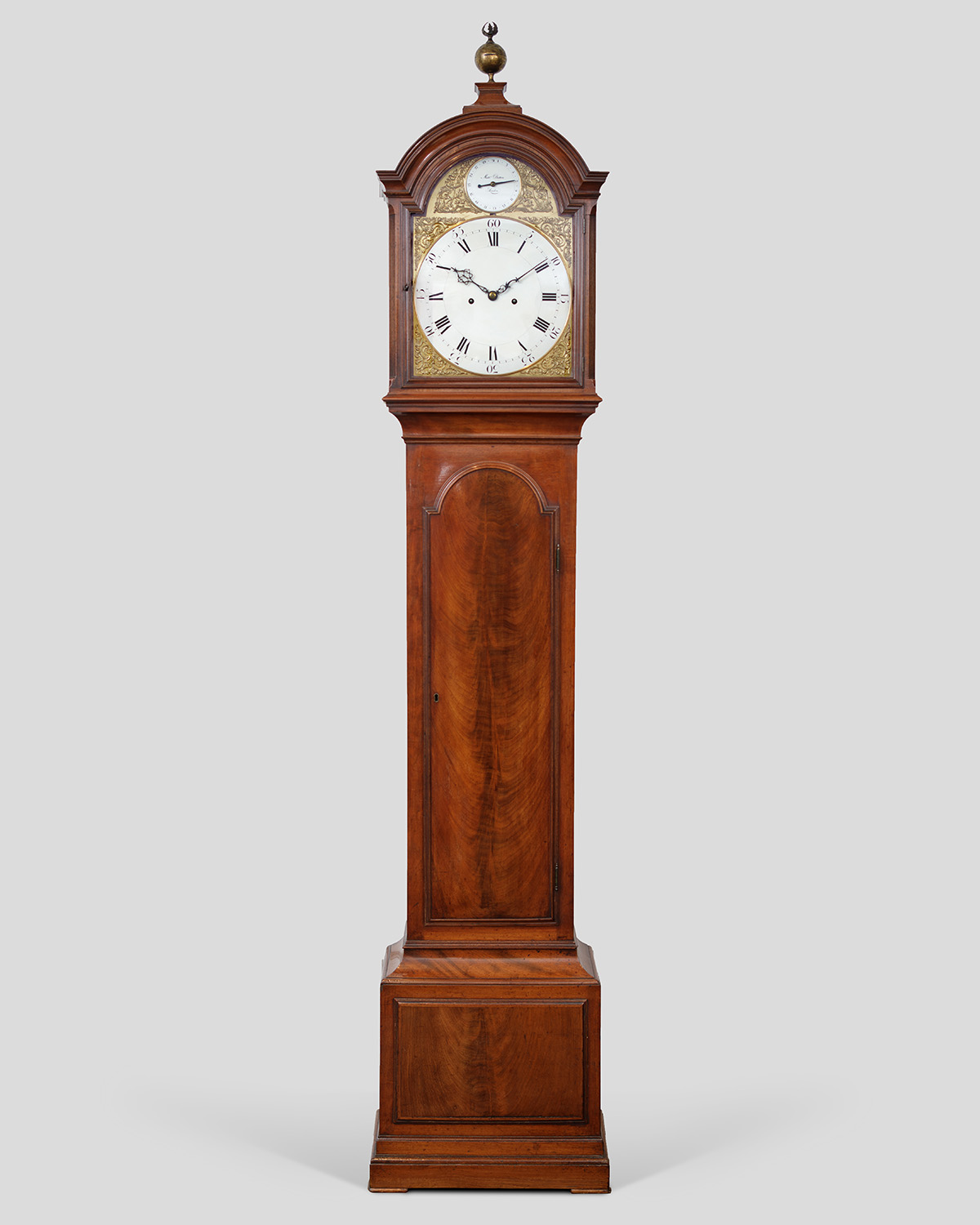
Matthew Dutton, London

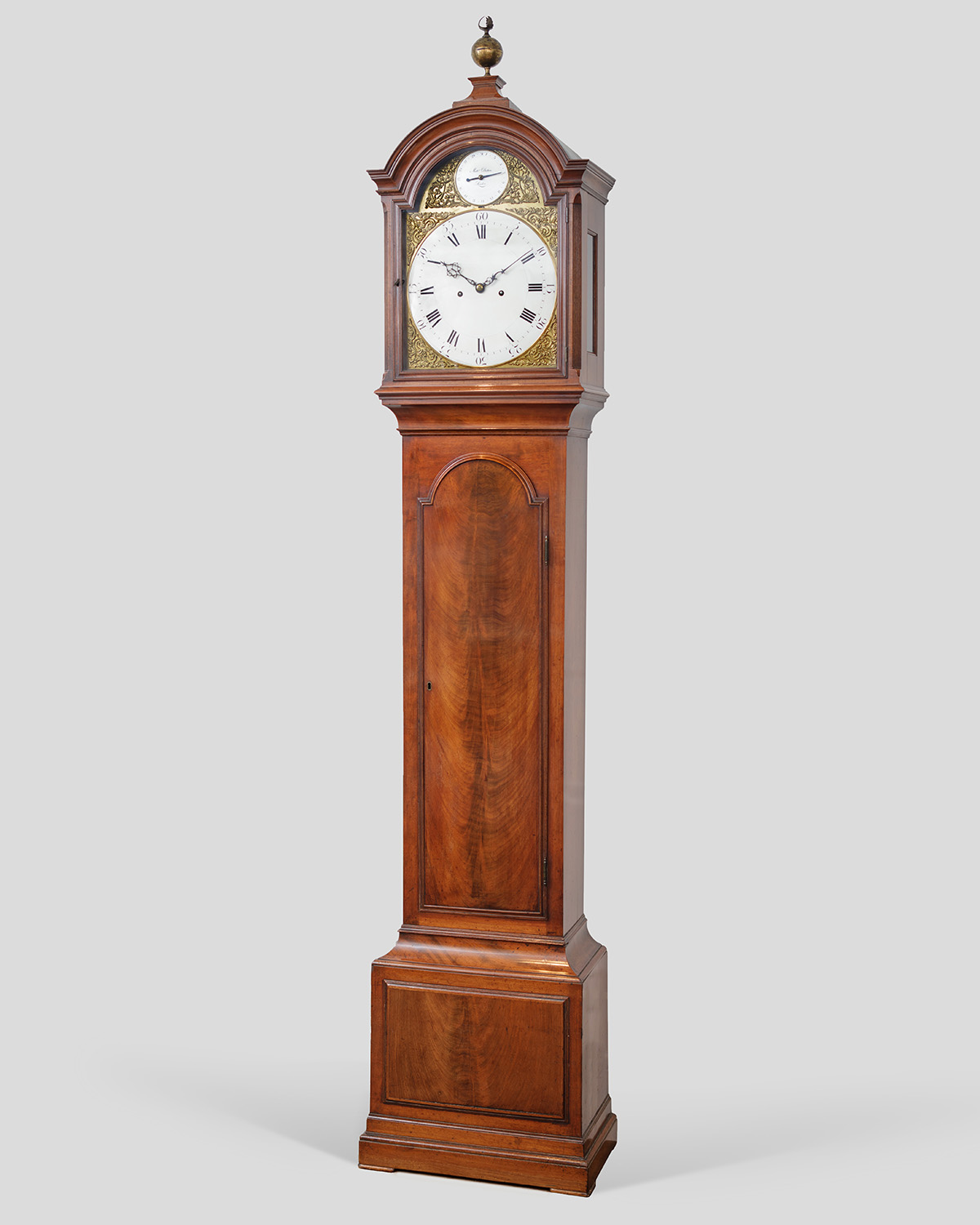
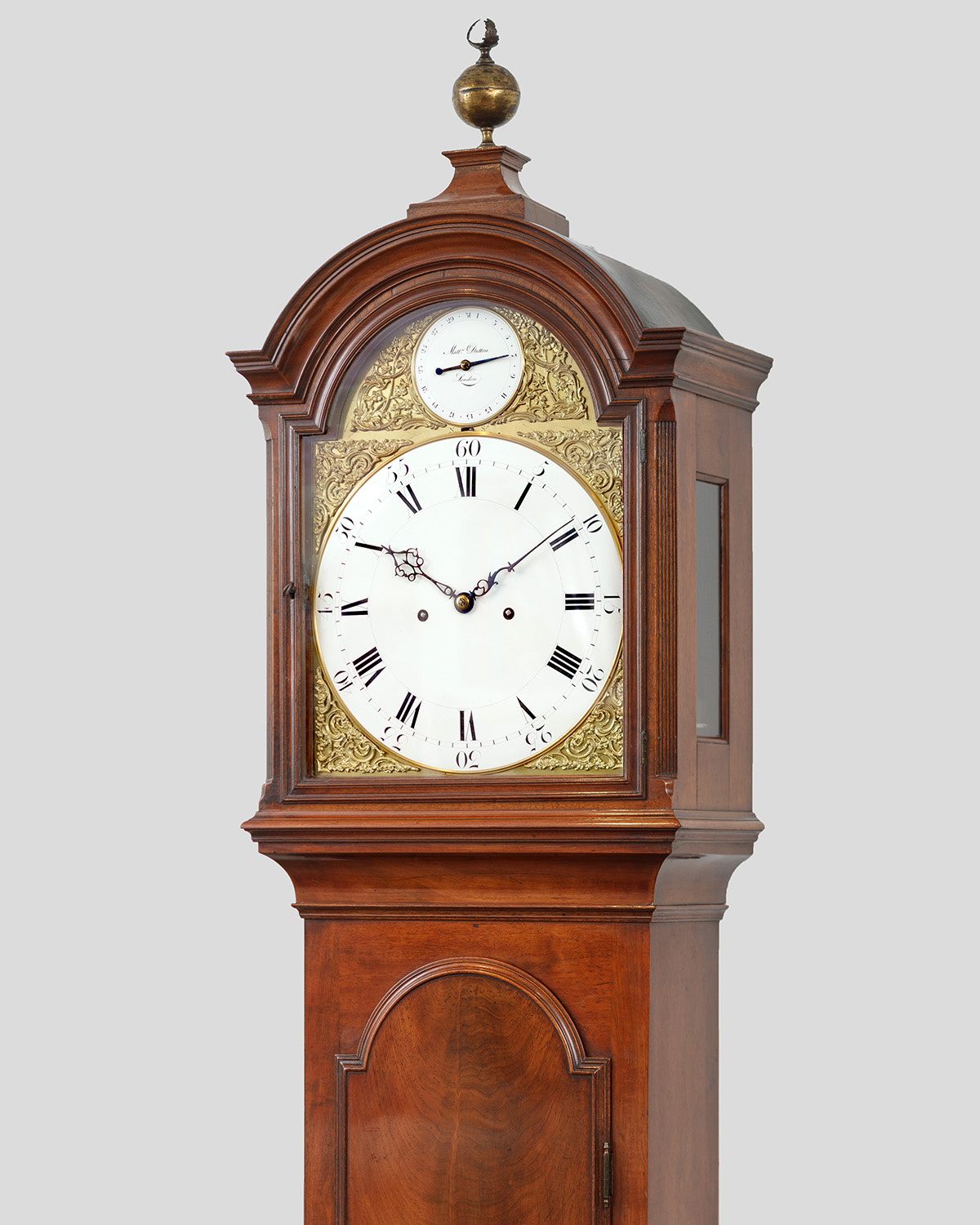
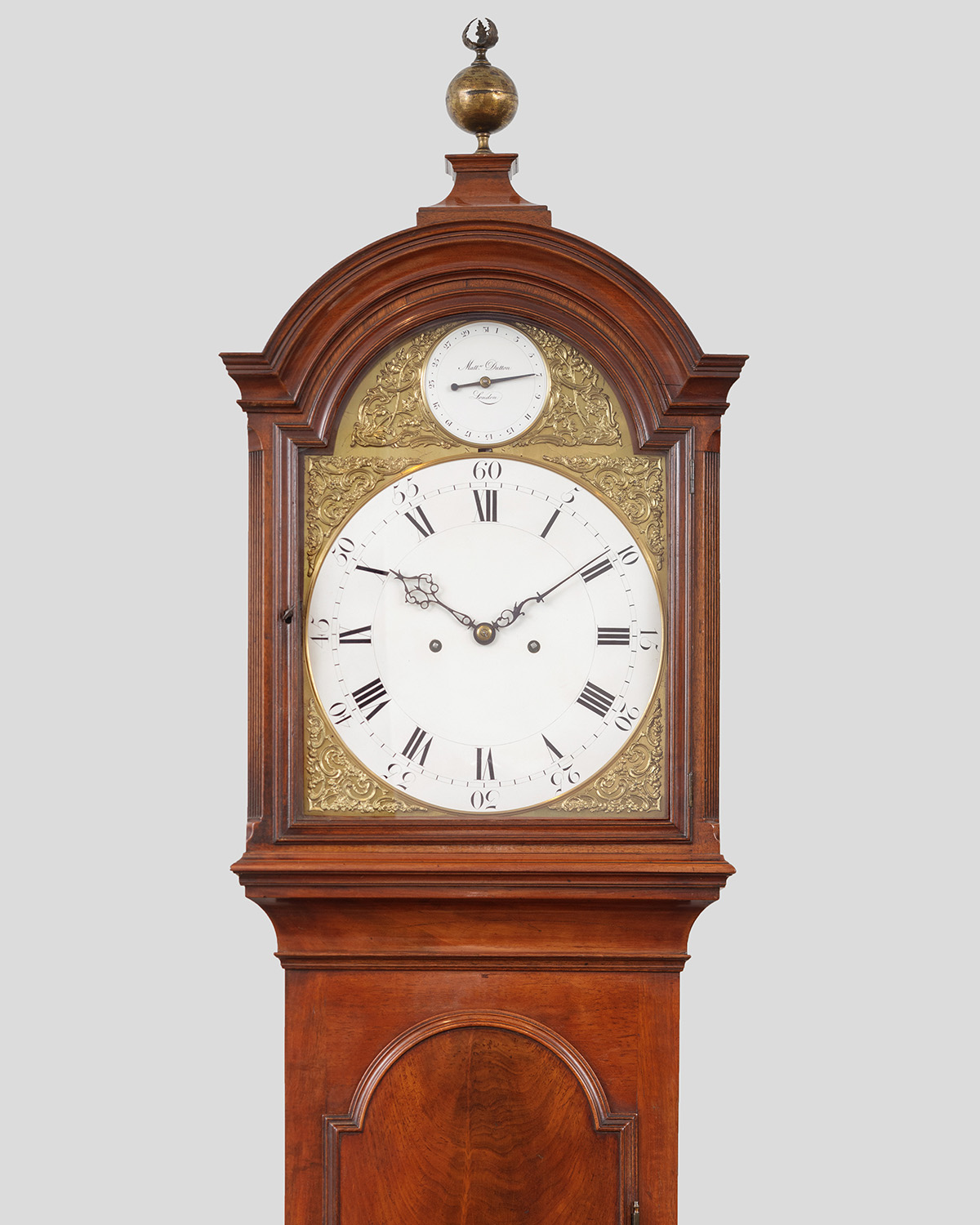
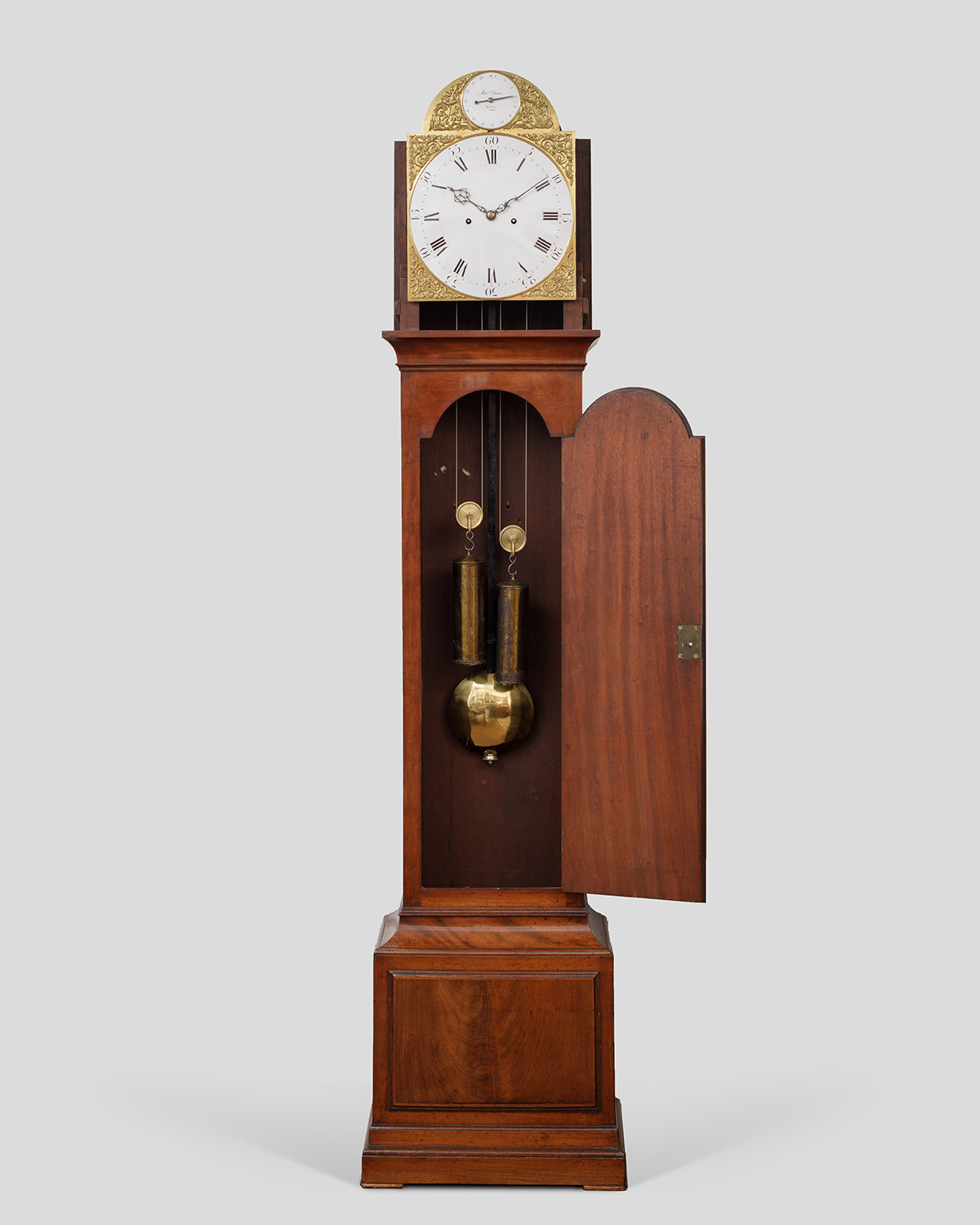
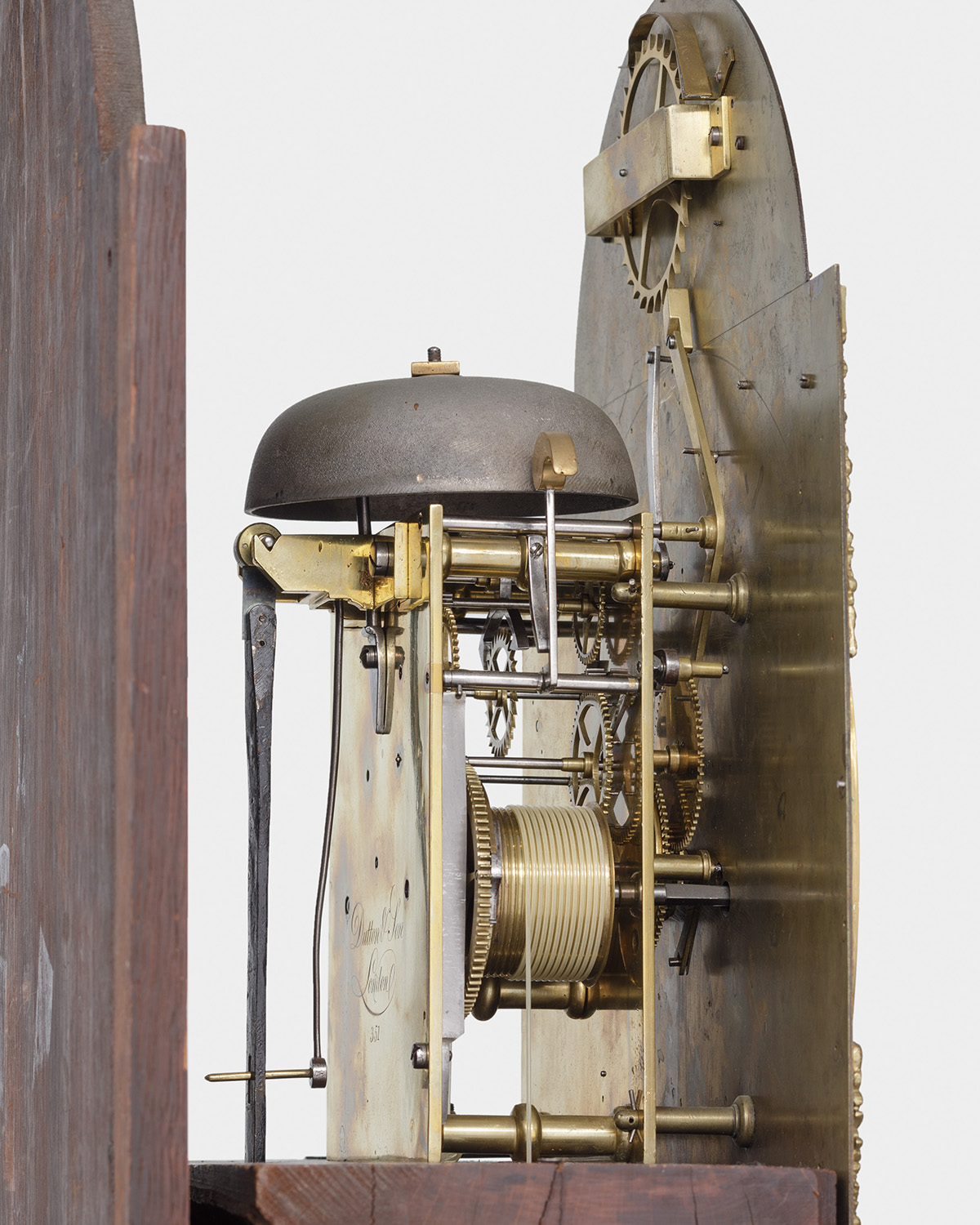
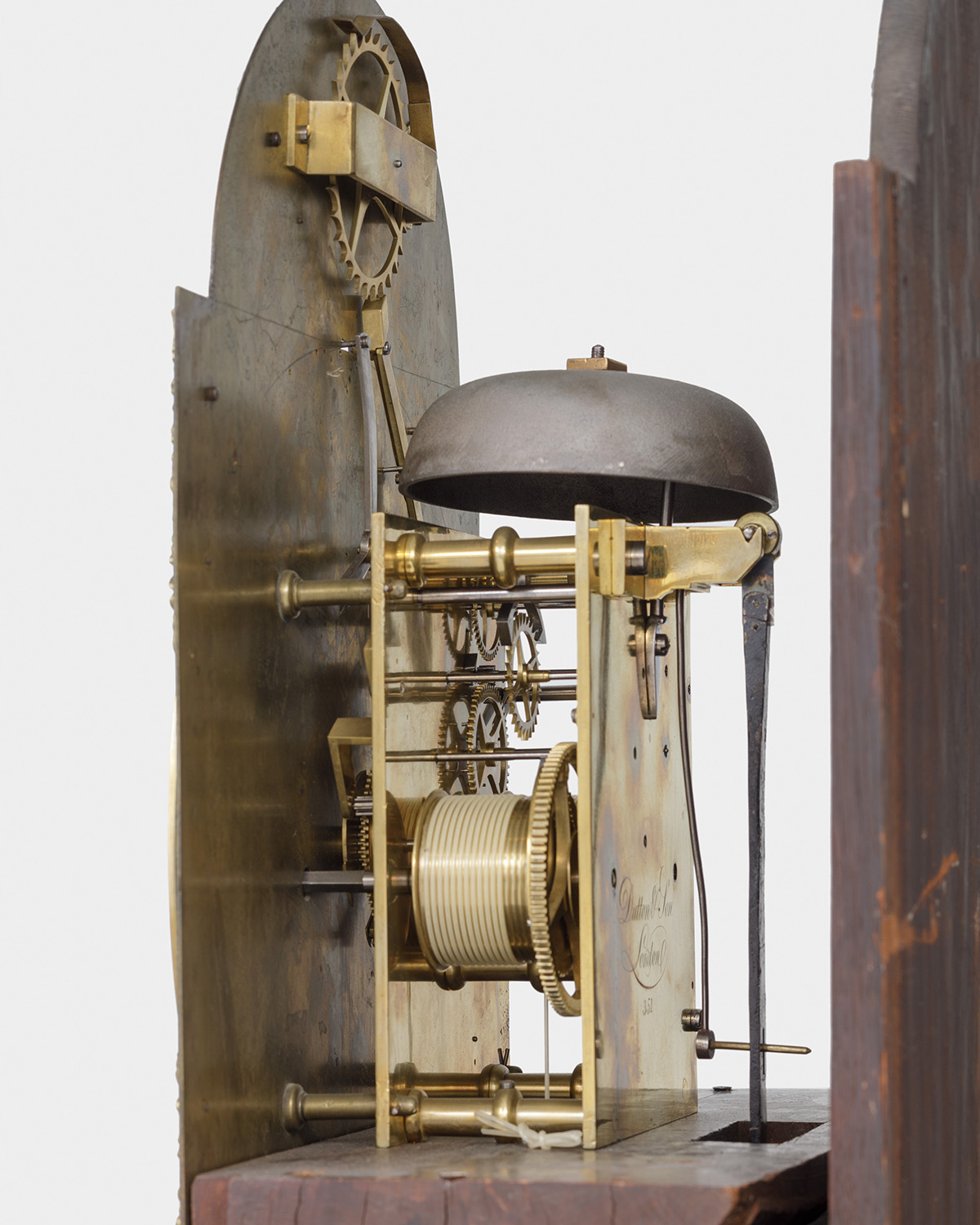

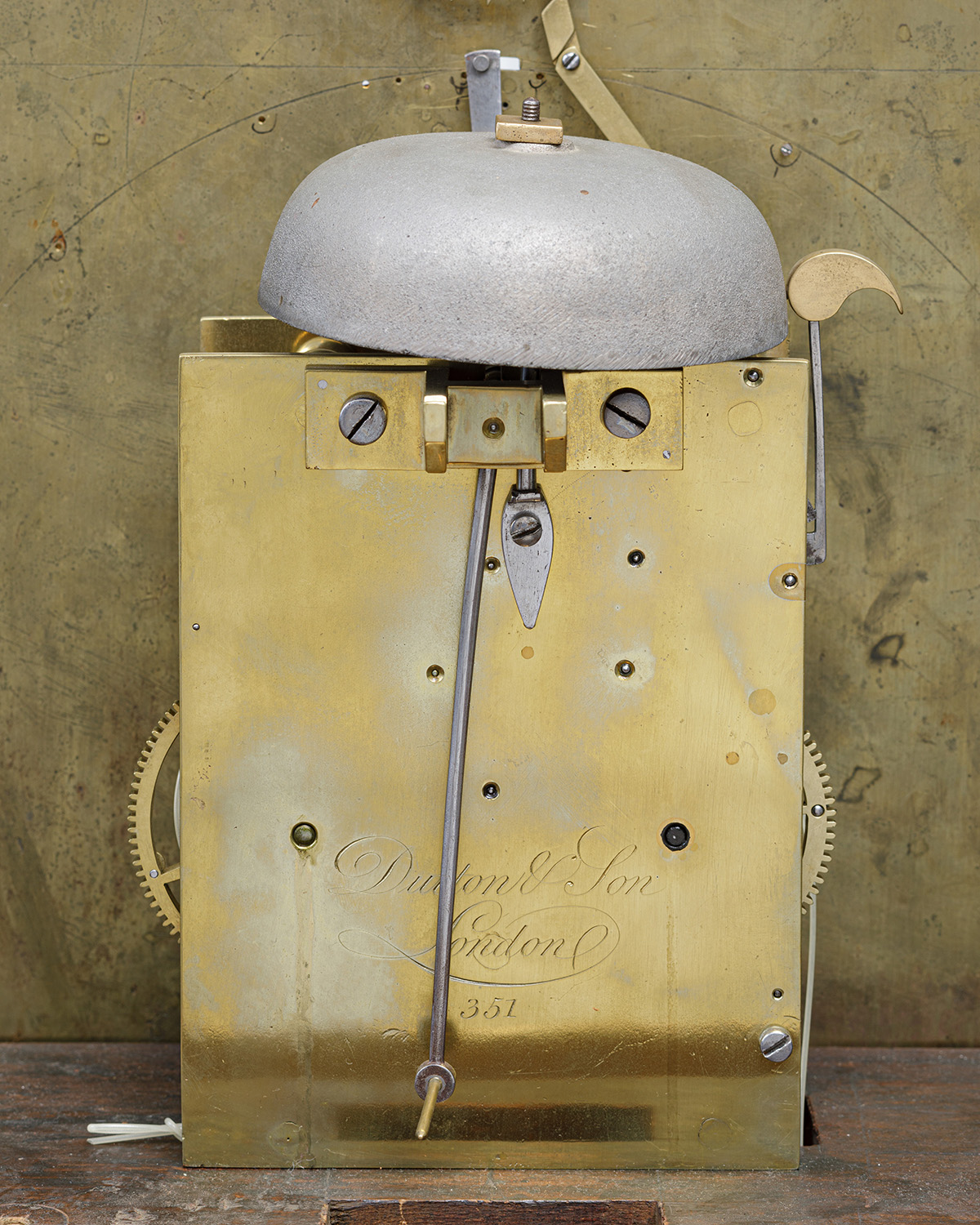
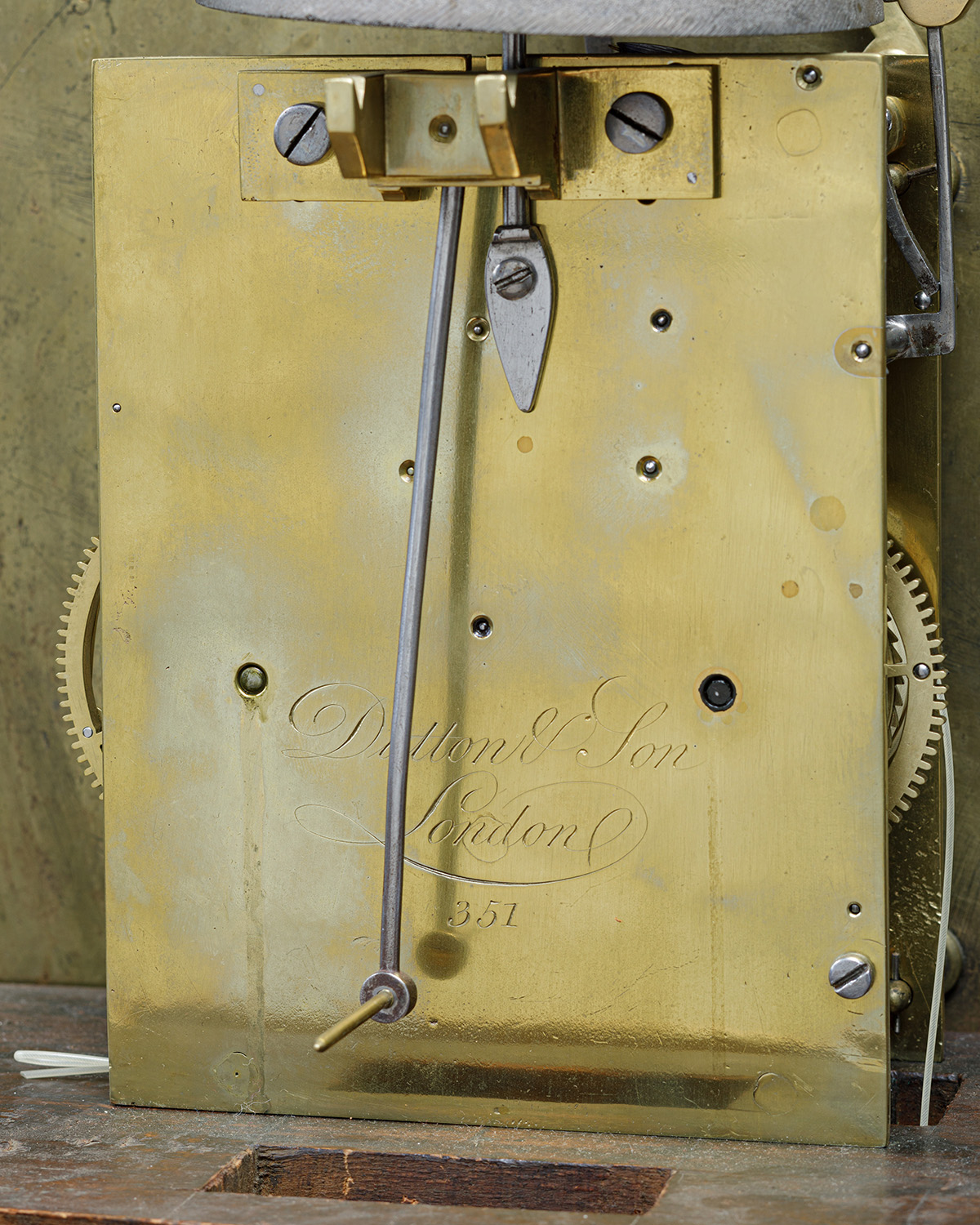
Circa 1800
Sold
A very fine mahogany 8-day Longcase clock. Case The well-balanced ‘Fleet Street' case is constructed of solid mahogany with a double skirt around the plinth which is fronted by a raised panel, the break arch trunk door is beautifully figured and it retains the original lock and hinges. The conforming break arch hood has stop-fluted angles flanking the door which has the special ‘Fleet Street' ogee moulding. The top is surmounted by a concave moulded plinth supporting the original brass ball finial. Dial The 12-inch brass dial is signed Matt. Dutton London on an enamel calendar dial in the arch flanked by gilt-brass foliate spandrels; the large white enamel main dial has Roman and Arabic chapters and the original fine quality blued steel hands. Movement The movement has thick brass plates with five baluster pillars, the strike train with hour strike on a bell above the plates, the going train with anchor escapement with a typically high-quality iron-rod pendulum with very large brass-faced bob with a calibrated silvered rating nut. 2 matching period brass-cased weight. Provenance Sold to the present owner by Anthony Woodburn in the 1990's Matthew Dutton Matthew Dutton was the son of the eminent clockmaker William Dutton who apprenticed to George Graham and was in partnership with Thomas Mudge until about 1770. Matthew was apprenticed to his father in 1771 and later in partnership with him in Fleet Street, London. He was admitted to the Worshipful Company of Clockmakers and became Master of the Clockmakers' Company in 1800. Matthew had a son (also called Matthew) who was admitted to the Worshipful Company of Clockmakers in 1815.
